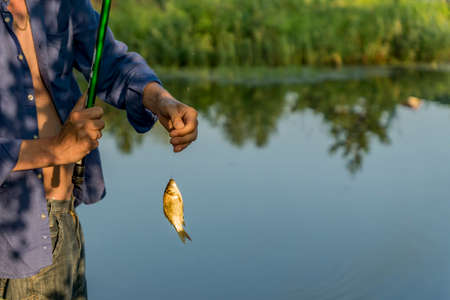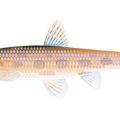Introduction to Inclusive Angling in the UK
Angling has long held a cherished place within British culture, offering not just relaxation and enjoyment, but also a sense of community that transcends generations. However, for many, barriers such as physical inaccessibility or social preconceptions have historically limited participation in this rewarding pastime. The movement towards inclusive angling seeks to dismantle these obstacles, championing accessibility and ensuring everyone – regardless of physical ability, age, or background – can enjoy the unique pleasures of fishing. As we explore the UK’s commitment to making angling universally accessible, it becomes clear that breaking down these barriers enriches both the sport and society. By fostering inclusivity, we create opportunities for more individuals to experience the tranquillity of Britain’s waters, connect with nature, and form lasting bonds within diverse communities. This article delves into the significance of accessible angling across the UK, highlighting how open access and thoughtful adaptation are transforming the sport into an activity without boundaries.
Essential Features of Accessible Fishing Venues
When seeking truly inclusive angling experiences across the UK, it is essential to consider the specific features and adaptations that transform a standard fishing spot into an accessible haven for all. These venues do not just comply with minimum standards; they actively promote participation among anglers of every ability. Below, we break down the critical elements that make fishing without barriers a reality.
Key Facilities for Accessibility
| Feature | Description | Why It Matters |
|---|---|---|
| Wheelchair-Friendly Pegs | Level, reinforced platforms designed for wheelchair users, often with safety rails and easy access from car parks. | Ensures everyone can fish comfortably and safely, regardless of mobility challenges. |
| Accessible Toilets | On-site facilities equipped with wide doors, grab rails, and emergency call systems, located close to main angling areas. | Maintains dignity and independence for disabled anglers during longer sessions. |
| Clear Signage | Large-font signs with tactile or braille options, mapping out accessible routes and emergency points. | Makes navigation straightforward for those with visual impairments or cognitive differences. |
| Step-Free Paths | Paved or well-maintained paths linking car parks to fishing spots and amenities. | Smooth access reduces trip hazards and fatigue, especially for wheelchair users or those with limited stamina. |
| Sensory Considerations | Quiet zones, shaded seating, and minimal visual clutter around pegs. | Catering to neurodiverse anglers who may be sensitive to overstimulation. |
| Dedicated Parking Bays | Marked spaces close to the water’s edge with ample room for adapted vehicles and unloading equipment. | Reduces distance and effort required to set up at the chosen peg. |
User-Focused Venue Adaptations
The most forward-thinking fisheries don’t stop at basic compliance. Many collaborate with local disability groups to refine their facilities, introducing features such as adjustable-height benches, induction loops in clubhouses, and even on-site volunteers trained in accessibility support. Some venues also offer adaptive angling equipment—like rod supports or bite alarms with vibrating alerts—to further level the playing field.
The UK Standard: Raising the Bar Nationwide
The Angling Trust and British Disabled Angling Association provide guidelines that many top venues now follow or exceed. This includes regular maintenance checks, staff training on disability awareness, and feedback mechanisms so anglers can suggest further improvements. By setting these standards high, UK fisheries are leading the way in making fishing a sport that genuinely welcomes all participants—regardless of age or ability.

3. Top Accessible Angling Locations Across England, Scotland, Wales, and Northern Ireland
England: Pioneering Inclusive Fishing Experiences
England leads the charge in accessible angling, with many fisheries actively promoting barrier-free access. Rib Valley Lakes in Hertfordshire stands out for its wheelchair-friendly platforms and on-site accessible facilities. The BDAA-accredited Hanningfield Reservoir in Essex offers level pathways and adapted toilet blocks, making it a favourite among disabled anglers. For city-based fishing, the Walthamstow Reservoirs in London provide dedicated parking and step-free access. When planning your trip, contact venues in advance to reserve accessible pegs and enquire about assistance if needed.
Scotland: Scenic Spots Embracing Accessibility
Scotland’s rugged beauty needn’t be off-limits thanks to venues like Loch Venachar near Callander, which features purpose-built fishing platforms and easy-access car parks. The Lake of Menteith is another gem, offering wheelchair-adapted boats for fly fishing and excellent support from local staff. Anglers are advised to check weather conditions beforehand and request bank-side assistance to ensure a seamless visit.
Wales: Welcoming Waters for All
Wales boasts some of the UK’s most picturesque inclusive fisheries. Llandegfedd Reservoir near Newport has invested in wide pontoons and tactile signage, while Garnffrwd Park Fishery in Carmarthenshire offers accessible lodges alongside well-maintained paths. Many Welsh venues operate “have-a-go” days with coaching tailored for anglers with additional needs—be sure to book early as these sessions are popular.
Northern Ireland: Breaking Down Barriers to the Water’s Edge
Northern Ireland has made impressive strides, particularly at Moorbrook Lodge Fishery in County Londonderry, where raised pegs and ramped access come as standard. Lough Gall is also noteworthy for its surfaced pathways and close proximity parking—ideal for those with mobility challenges. Local angling clubs often collaborate with disability groups; contacting them can yield extra support or insider tips on quiet times for optimal accessibility.
Your Barrier-Free Fishing Checklist
- Always confirm accessibility features directly with venues before travelling.
- Pack adaptive tackle or aids if required—some venues offer equipment hire on request.
- If you need a companion or support worker, many fisheries provide complimentary entry or assistance schemes.
Conclusion: Plan Ahead for an Unforgettable Angling Experience
The UK’s top inclusive angling locations prove that fishing truly can be enjoyed by everyone, regardless of ability. With careful planning and open communication with venue staff, you can create memorable barrier-free adventures across all four nations.
Community Initiatives and Support Groups
Across the UK, a host of clubs, charities, and local council schemes are actively breaking down barriers to angling, ensuring that anyone—regardless of age, ability, or background—can experience the joys of fishing. These organisations not only provide accessible facilities but also foster supportive environments where inclusivity is at the forefront. By examining successful community-driven efforts, we can see how grassroots engagement is transforming the landscape for inclusive angling.
Championing Inclusive Angling: Key Organisations
The following table highlights some notable UK-based initiatives and their primary offerings:
| Organisation | Region | Main Activities | Inclusive Features |
|---|---|---|---|
| Fishing for Everyone Charitable Trust | North East England | Angling tuition, events, outreach | Accessible equipment, tailored support for disabled anglers |
| The Wheelyboat Trust | Nationwide | Provision of wheelchair-accessible boats | Bespoke boats for various disabilities, training sessions |
| Tackle Your Ability (Angling Trust) | England & Wales | Coaching, taster days, advocacy | Trained volunteers, adapted coaching for mental and physical challenges |
| Lets Fish! (Canal & River Trust) | UK-wide | Free family-friendly angling sessions | Sensory-friendly events, adaptive fishing gear available |
Council-Backed Programmes Making a Difference
Local councils play an instrumental role by funding accessible fishing platforms, adapting pathways at popular watersides, and supporting local angling groups with grants. Notably, South Gloucestershire Council collaborated with Avon Angling Club to upgrade lake access and install tactile signage for visually impaired anglers—a model now being replicated elsewhere.
Success Stories: Building Communities Through Outreach
A shining example comes from “Fishing 4 Schools,” a charity that partners with schools across England to introduce young people with learning difficulties to angling. Their tailored curriculum combines practical skills with confidence-building in a supportive setting. Likewise, regional projects such as “Get Hooked on Fishing” in Scotland have seen a measurable increase in participation among underrepresented groups thanks to targeted mentoring and peer support.
The Road Ahead: Sustaining Momentum and Expanding Reach
Sustained collaboration between clubs, local authorities, and national bodies is vital for maintaining progress. By sharing best practices and securing funding for infrastructure improvements and outreach programmes, the UK’s angling community continues to set the standard for inclusivity—proving that fishing truly can be a sport without barriers.
5. Essential Kit and Techniques for Accessible Fishing
When it comes to inclusive angling across the UK, having the right equipment and mastering suitable techniques are vital for ensuring that every participant enjoys a rewarding and comfortable experience. Here’s how you can prepare for accessible fishing adventures with confidence and ease.
Recommended Adaptive Tackle
Modern tackle shops throughout Britain now stock a range of adaptive fishing gear designed to meet diverse needs. For instance, lightweight rods with ergonomic handles help those with limited grip or arm strength, while one-handed reels or push-button spincast systems enable effortless casting and retrieval. Rod rests and bank sticks provide stability on uneven ground or platforms, making it easier to fish from a wheelchair or seated position.
Cutting-Edge Technology Enhancing Accessibility
Technological advances have transformed inclusive angling. Electronic bite alarms alert anglers with hearing impairments via visual signals or vibrations, while sonar fish finders help those with visual impairments locate fish more efficiently. Remote-controlled bait boats allow precise placement without the need for complex casting, making fishing more accessible than ever before.
Safe and Effective Fishing Techniques
Safety is paramount—especially at waterside venues designed for accessibility. Always use non-slip mats or shoes when moving around damp banks or platforms. Float fishing is an excellent method for beginners and those seeking minimal physical strain, as it allows easy detection of bites without constant rod handling. For group outings, consider adopting buddy systems and clearly marked pathways to ensure everyone can navigate the area confidently.
By combining adaptive kit, innovative technology, and mindful techniques, anglers of all abilities can experience the thrill of British fishing in comfort and safety—reinforcing that there truly are no barriers on the bank.
6. Planning Your Barrier-Free Fishing Adventure
Strategic Preparation for a Seamless Experience
Embarking on an inclusive angling trip in the UK requires more than simply choosing a destination; it calls for thoughtful planning to ensure a smooth, enjoyable, and fully accessible experience. Here are some strategy-driven tips tailored to the unique culture of British angling enthusiasts.
Transport: Getting There with Ease
When planning your journey, consider accessible public transport options such as trains and buses equipped with step-free access and space for mobility aids. The National Rail Enquiries website offers up-to-date information on station accessibility, while many local councils provide details on dial-a-ride or community transport schemes. For those driving, research parking facilities at venues—many inclusive fisheries offer dedicated disabled parking close to prime swims.
Permits and Licensing: Navigating the Essentials
Remember that all anglers aged 13 and over must hold a valid Environment Agency rod licence in England and Wales. These can be purchased easily online or at most post offices. Many inclusive venues also require advance booking or day tickets; check their websites or call ahead to secure your spot. Be aware of any concession rates available for blue badge holders or those registered as disabled.
Booking Advice: Securing Accessible Facilities
Book early, especially during peak seasons, to guarantee access to adapted pegs, accessible toilets, and equipment hire if needed. When contacting fisheries or angling clubs, ask specific questions about pathways, ramps, shelter availability, and nearby amenities. Don’t hesitate to request photos or detailed descriptions to confirm suitability for your needs.
Tapping into Local Resources
Leverage the expertise of local angling associations and disability sports charities such as the Angling Trust or Fishing For All UK. These organisations often maintain updated lists of barrier-free locations and can recommend guides familiar with adaptive fishing techniques. Engage with online forums or social media groups for first-hand reviews from fellow anglers who have visited the venues you’re considering.
Final Tactics for a Rewarding Trip
Packing strategically is key: bring adaptive tackle if required, weather-appropriate clothing (the British weather is famously unpredictable), and a means of communication in case assistance is needed. Most importantly, approach each adventure with flexibility and the spirit of British angling camaraderie—ready to adapt strategies as conditions change and always respecting local etiquette and conservation guidelines.


